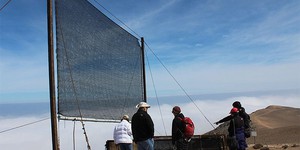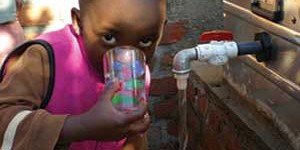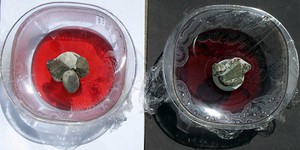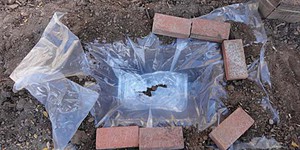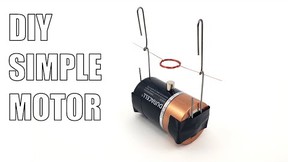Clean Water and Sanitation, Fourth Grade Science Projects (5 results)
The United Nations Sustainable Development Goals (UNSDGs) are a blueprint to achieve a better and more sustainable future for all.
These projects explore topics key to Clean Water and Sanitation: Ensure access to water and sanitation for all.
These projects explore topics key to Clean Water and Sanitation: Ensure access to water and sanitation for all.
Science Buddies' fourth grade science projects are the perfect way for fourth grade students to have fun exploring science, technology, engineering, and math (STEM). Our fourth grade projects are written and tested by scientists and are specifically created for use by students in the fourth grade. Students can choose to follow the science experiment as written or put their own spin on the project.
For a personalized list of science projects, fourth graders can use the Science Buddies Topic Selection Wizard. The wizard asks students to respond to a series of simple statements and then uses their answers to recommend age-appropriate projects that fit their interests.
Let us help you find a science project that fits your interests, with our Topic Selection Wizard.|
Select a resource
Coding Projects
Sort by
|
Did you know that about 1 in 10 people worldwide do not have access to clean water? Collectively, girls and women worldwide spend an average of 200 million hours every day collecting the water they need from rivers, water holes, or lakes. What if there was a way to capture water from another source—like the air? In areas where there is a lot of fog, a device called a fog catcher makes this possible. Fog catchers use fine meshes to capture and collect water droplets from the foggy air.…
Read more
Living in the industrialized world, like the United States, we are fortunate because we don't have to worry about the quality of our drinking water. Your community has the means to clean and provide water to you. But in many parts of the world, people don't have this luxury. Whether it is due to war or poverty, the lack of clean water leads to many health and social problems. In this environmental engineering science project, you will learn about different methods to filter out impurities in…
Read more
New
How do you feel right now? Do you remember how you felt a few hours ago? How about yesterday or last Wednesday? What if you could track your emotions throughout the day and use this information to help improve your mood and well-being? In this science project, you will program a simple, pocket-sized device that you can carry around with you to log your feelings whenever you want or on a specific schedule.
Read more
Some plants grow only in water-logged environments. These plants are usually native to wetlands and are important for the sustainability of aquatic ecosystems. Wetland ecosystems are very fragile and susceptible to the toxic dumping of sewage and fertilizer run-off from neighboring farm land. One very common aquatic plant called duckweed inhabits many wetland marshes. Duckweed grows by asexual reproduction and floats at the surface of the water with tiny roots extending into the water below.…
Read more
Have you ever thought about being stranded on a desert island? How would you find water to drink? What would you need to survive? In this science fair project you'll discover how to turn the ocean into a source of freshwater by using the power of the Sun.
Read more
Most of us live in areas where sources of water exist nearby as oceans, rivers, lakes, ponds, streams,
reservoirs, wells, or even underground streams. But in some places, like the desert, water is hard to find
and a precious resource. In this environmental engineering science project, you will investigate one way
that people living in arid regions can collect water inexpensively: dew traps.
Read more
|

